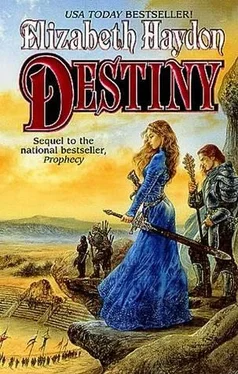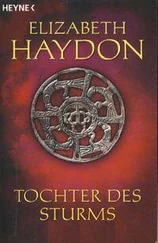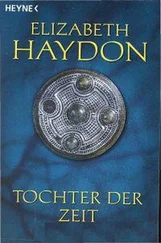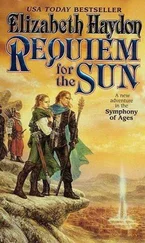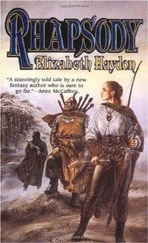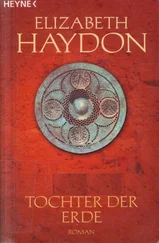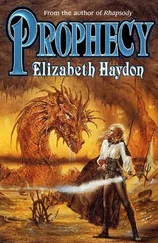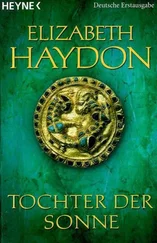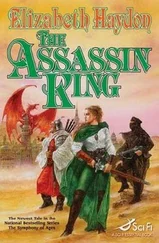Elizabeth Haydon - Destiny - Child of the Sky
Здесь есть возможность читать онлайн «Elizabeth Haydon - Destiny - Child of the Sky» весь текст электронной книги совершенно бесплатно (целиком полную версию без сокращений). В некоторых случаях можно слушать аудио, скачать через торрент в формате fb2 и присутствует краткое содержание. Год выпуска: 2001, Жанр: Фэнтези, на английском языке. Описание произведения, (предисловие) а так же отзывы посетителей доступны на портале библиотеки ЛибКат.
- Название:Destiny: Child of the Sky
- Автор:
- Жанр:
- Год:2001
- ISBN:нет данных
- Рейтинг книги:3 / 5. Голосов: 1
-
Избранное:Добавить в избранное
- Отзывы:
-
Ваша оценка:
- 60
- 1
- 2
- 3
- 4
- 5
Destiny: Child of the Sky: краткое содержание, описание и аннотация
Предлагаем к чтению аннотацию, описание, краткое содержание или предисловие (зависит от того, что написал сам автор книги «Destiny: Child of the Sky»). Если вы не нашли необходимую информацию о книге — напишите в комментариях, мы постараемся отыскать её.
Destiny: Child of the Sky — читать онлайн бесплатно полную книгу (весь текст) целиком
Ниже представлен текст книги, разбитый по страницам. Система сохранения места последней прочитанной страницы, позволяет с удобством читать онлайн бесплатно книгу «Destiny: Child of the Sky», без необходимости каждый раз заново искать на чём Вы остановились. Поставьте закладку, и сможете в любой момент перейти на страницу, на которой закончили чтение.
Интервал:
Закладка:
In addition, the women dressed as she was were often being roughly herded in and out of the complex, occasionally with the sting of a whip. Rhapsody’s blood boiled, and she could feel the fire within her rise to the surface of her skin, but she swallowed her anger at the sight and steadied her resolve. She was here to save the gladiator, not change the culture of Sorbold, however much she may have wanted to.
The streets surrounding the arena contained feeder alleys that led into small courtyards. In each of these central areas that she had passed, Rhapsody saw minor bouts of fighting taking place amid a smaller, loose crowd of observers, peasants and merchants who broke into hooting cheers as particularly bloody hits were landed.
The combatants in these street bouts often appeared to be barely out of childhood, boys and occasionally girls as young as perhaps nine summers, attacking each other with such zealous ferocity that the victor often had to be restrained from gutting his fallen opponent. Rhapsody shuddered as a great cry of delight rose, along with an arching spray of blood, from a contest between two young boys no older than her adopted grandson, Gwydion Na-varne.
The closer courtyards to the arena held the semi-professionals, gladiators in training who were not yet deemed worthy to fight in the arena, but who had already garnered, in most cases, a large and devoted following among the street audience. Gambling was widely evident, with oddsmakers working the crowd furiously, trying to coax from them some of the Sorboldian gold-stones they had brought to wager in the arena itself.
In the last of these courtyards immediately outside the gladiatorial arena stood a large wooden scale, bound in rickety metal and balancing two large disks, scale plates large enough to hold an ox for weighing. Rhapsody recognized this instrument as a cruder version of the ones that stood inside the various fighting pits within the complex. Llauron had explained their use to her as part of their planning.
At the decision point of each major bout, and apparently a few of the street matches as well, a fighter who had been disarmed or injured to the point of not being able to continue was deemed, by the sound of the arena-master’s gong, to be Towrik, or compromised. It was at this point that the crowd turned to an enormous set of scales to decide the warrior’s fate.
The country of Sorbold was situated, for the most part, on the leeward side of the Teeth, making it a dry and arid place, a realm of almost endless sun and desert. The religion of Sorbold, while a See loyal to the Patriarch in Sepulvarta, carried with it a hint of the old pagan days, a devotion to the balance of the natural world. In a land where one overirrigation of a field might mean the permanent loss of a village’s drinking-waterwells, nature’s balance was a matter of life and death.
So it was in the gladiatorial arena as well. With the sound of the gong, a crowd would take up the chant: Towrik, Towrik, Towrik . The reverberation of the word would echo in the arena, increasing in momentum, gaining fury, until the seats began to tremble, or so Llauron said.
While the victor in the bout strode to the Winner’s Rise to await the acclaim and adulation of the masses and the nobility, the unfortunate loser was carried, amid growing pandemonium, to the scales, which had been wheeled to the middle of the arena floor like a great god-of sacrifice, where he or she was unceremoniously dumped onto one of the weighing plates. Two pairs of dray horses with wheeled carts affixed to their hitchings stood, one at either side of the mechanism, each of the scale plates resting atop a cart.
Now the bargaining began. If the fighter was a slave, and valuable to his owner, ofttimes the owner would hold up a slate with a life offering inscribed on it. At the arenamaster’s signal, large, multicolored weights corresponding in poundage to the amount of the owner’s offering would be carried to the opposing scale plate and set in it. Other members of the nobility and, ultimately, the crowd, were allowed to cast their life offerings into the opposing plate as well. Sometimes even other slaves, both women and men, were offered up, particularly when the fighter had established a reputation for skill and profitability.
If the fighter was a freeman, the task of making life offerings was left to the crowd or his admirers among the nobility, proving in a time-honored way the high cost of freedom. As a result, even when they had accumulated a great deal of personal wealth and more than enough bout credits to purchase their freedom, many of the best gladiators chose to remain in slavery, improving their chances that someone would bid to save them when in Towrik. Constantin was not one of them.
When all the life offerings had been made, the arenamaster’s gong rang again, and the two horses were led, slowly, away from the scales. The arena would grow absolutely silent as the crowd waited for the enormous apparatus to weigh the results. Then, if the scales balanced, or weighed in the fighter’s favor, he or she was taken from the massive scale plate by the complex physician’s healers and led or carried away amid a ferocious chorus of mixed applause and hissing sneers. Half the life offerings were whisked away to fill the coffers of the regent whose city-state owned the arena, while the other half was presented, amid tumultuous cheering, to the victor.
If, however, the scales decided against the one in Towrik, an even greater roar went up from the crowd. While the content of the entire plate of life offerings was presented to the victor, the event that was more central to the interest of the crowd was prepared. A large, saw-bladed sword was placed in front of the scales, in the direct line of sight of the regent’s box, while long straps of leather were bound rapidly to the loser’s ankles. The loser was then dumped from the scale plate. The arenamaster waited long enough for the scale plates to balance, a matter of a very few seconds, before ringing the gong one last time.
If the unfortunate fighter could scramble to the sword in the intervening time, he or she could take the opportunity offered, and quickly bring life to an end in a somewhat honorable manner by falling on the weapon. Such feats of speed while compromised were almost always greeted with a chorus of furious hissing, as they denied the eager crowd the true spectacle. For if the fighter did not reach the sword before the gong rang again, the horses were loosed, tearing forth ahead of a sharp spurring and the deafening sound.
The crowd would burst forth in orgiastic screaming, thundering the stands while the unfortunate was dragged to a gruesome and ignominious death, ofttimes the horses being caught and brought to a halt only after the corpse’s head had come off and rolled to a stop. Rhapsody shook off the thought and steeled her resolve, waiting for the right moment to enter the arena.
As night began to fall the streets cleared of their traffic, and Rhapsody crossed the thoroughfare carefully, slipping into the entrance she had marked as most likely to take her where she needed to be. Once inside she clung to the dark wall, moving silently down the fetid corridors until she heard noise echoing before her that she recognized as a convocation of human beings.
She quickly pulled off the woolen cloak and her boots, as she had not seen shoes on the feet of the slaves whom she had observed outside the arena. She looked around for a moment, finally coming in sight of a small alcove, where she hid her cloak and boots, hoping to recover them once she was outside again. Then she put the small bag with the bottle of liquid that Llauron had given her to render the gladiator unconscious into the waistband of her outfit. She noted the clothes of the women slaves; some were revealing, like the ones she wore, but more were simple sets of tunics and knee pants. The women who wore clothes such as those seemed to be of a higher level of training, and often carried bandages or shrouds. Rhapsody wished that she had known about the option, but Llauron knew this culture well, and she trusted his judgment.
Читать дальшеИнтервал:
Закладка:
Похожие книги на «Destiny: Child of the Sky»
Представляем Вашему вниманию похожие книги на «Destiny: Child of the Sky» списком для выбора. Мы отобрали схожую по названию и смыслу литературу в надежде предоставить читателям больше вариантов отыскать новые, интересные, ещё непрочитанные произведения.
Обсуждение, отзывы о книге «Destiny: Child of the Sky» и просто собственные мнения читателей. Оставьте ваши комментарии, напишите, что Вы думаете о произведении, его смысле или главных героях. Укажите что конкретно понравилось, а что нет, и почему Вы так считаете.
